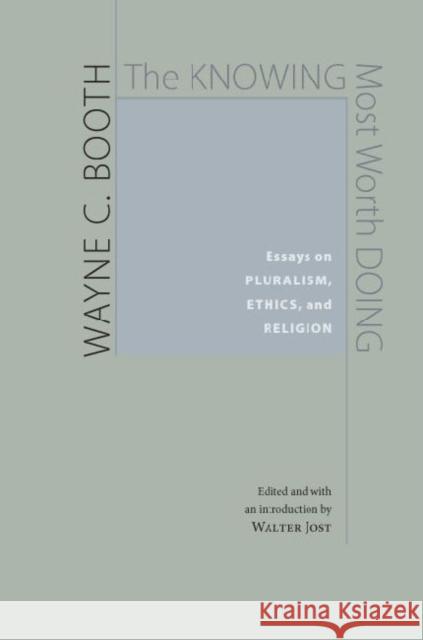The Knowing Most Worth Doing: Essays on Pluralism, Ethics, and Religion » książka
The Knowing Most Worth Doing: Essays on Pluralism, Ethics, and Religion
ISBN-13: 9780813929927 / Angielski / Twarda / 2010 / 240 str.
Throughout the second half of the twentieth century until his death in 2005, Wayne Booth was one of the most influential literary critics in America and beyond, known worldwide for The Rhetoric of Fiction (1961), and hailed as a progressive advocate for rethinking the concept of liberal education in a changing world. His many books and essays remain classic reading for those who wish to understand how fiction communicates ethically, why good ethical criticism as such is a signature human activity to be cherished, and how the human desire to know helps to define who we are, collectively and individually. In this final volume of Booth's selected essays, appropriately titled The Knowing Most Worth Doing, after Booth's earlier edited collection, The Knowledge Most Worth Having (1967), Walter Jost, in collaboration with the author, has gathered an indispensable collection of his former teacher's thinking across a wide variety of fields and disciplines, from ethics to religion and from rhetorical criticism to the philosophical plurality of possible critical modes. The selections begin with three diverse, profound discussions of the need for plural perspectives in the contemporary world, proceed to accessible yet learned readings of the ethics of literature, and end with wonderful speculations on the nature of, and human need for, religious thought. Gathered from various journals and books over several decades, these -fugitive- essays will prove their enduring value because they speak frankly and without pretensions to problems that continue to plague us, and to aspirations that continue to draw a new generation into the knowing most worth doing. In these discussions, knowledge is understood as an activity and a way of life, one that can be embraced by all people in many different ways.











